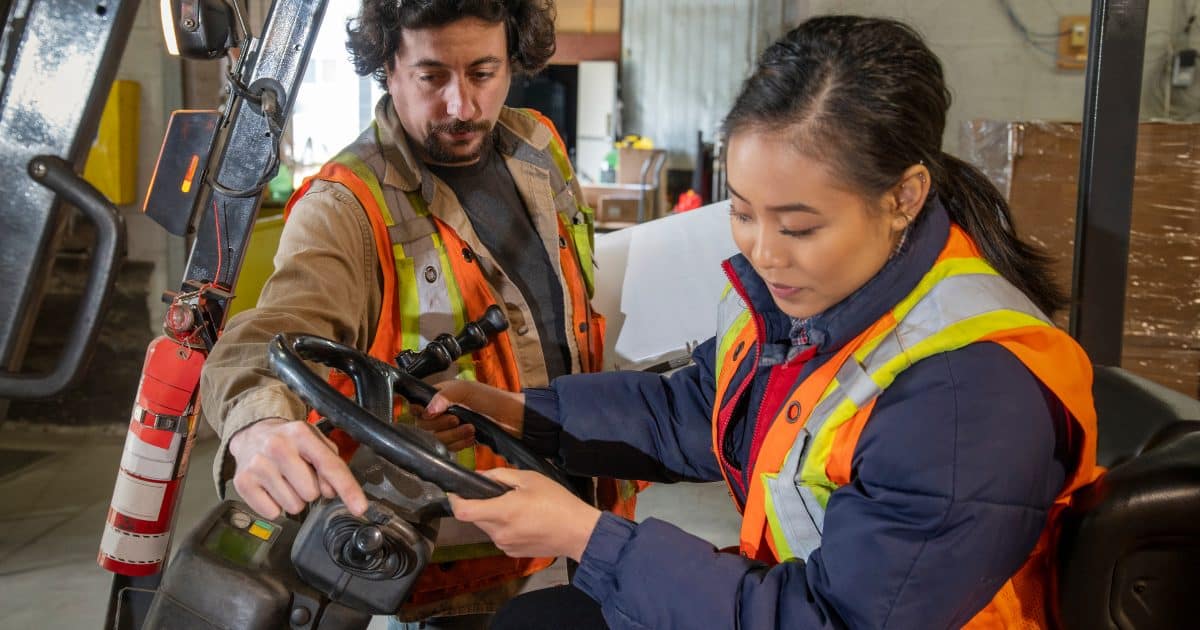
Thousands of people get injured every year while operating forklifts. It is important to undergo proper training and learn safety protocols to ensure that workers remain safe when using this handling equipment to do their tasks.
Every year there are a total of 96,785 injuries related to forklift accidents in the United States. This number includes non-serious incidents like bruises and cuts and major injuries that lead to trauma, disfigurement, impairment, and in the worst cases, death. That’s an alarming number of cases especially since the estimated number of forklifts in the US amount to less than 900,000, meaning more than one in ten forklifts are involved in these incidents.
Forklifts accidents happen more often than you think. The most common incident involves a forklift overturning, appearing in 24% of forklift-related reports every year. Despite the incident rate, the Occupational Safety & Health Administration (OSHA) believes that around 70% of forklift accidents could be prevented if companies required stricter training programs for their employees.
Why are Forklifts Often Involved in Accidents?
Forklifts are a staple in warehouses because they allow people to move heavy items and products in large quantities more easily and efficiently. However, due to their physical nature, forklifts can also be a workplace hazard, especially if the operator isn’t properly trained.
A forklift can weigh more than 9,000 pounds, which is around thrice the weight of an average car. To better support the heavy load it carries in the front, most of the forklift’s weight is placed towards its rear end. This uneven distribution of weight makes operating a forklift more challenging, and in the hands of an inexperienced operator, it increases the chances of the forklift tipping over and causing injuries to both the operator and the people around him.
Since forklifts are generally used to lift heavy loads and transport them around the warehouse, there’s a small chance that the load drops from a significant height if ever the operator presses the wrong button, which is another recipe for disaster. The fact that the loads are carried in the front obstructing the operator’s line of vision also doesn’t help.
How to Prevent (or Lessen) Forklift Accidents
Ideally, any business that deals with forklift operations should require their workers to undergo relevant training before actually using a forklift. Doing so can significantly lessen, if not prevent any forklift-related accidents from happening.
Fortunately, there’s a law that requires all forklift operators to complete a training program that covers several topics essential in forklift and industrial truck operations before being legally allowed to handle the equipment. The important topics covered include basic operating instructions, an understanding of the equipment’s engine or motor operations, steering and maneuvering tactics, visibility difficulties, vehicle capability, and stability, as well as learning proper maintenance and inspection for the assigned equipment.
The training program should also cover topics related to the work environment. For instance, there are different kinds of loads for each warehouse, and it’s important for the operator to understand how to manipulate and stack each kind of load composition not just to prevent accidents but also to maximize work efficiency. Different storage facilities will also feature different surfaces (narrow aisles, sloped surfaces, ramps), so operators should learn how to utilize and adapt forklift movement depending on the environment,
If an operator becomes involved in a forklift-related accident or failed evaluation, he should be retrained to ensure that he retains the proper operating guidelines mentioned earlier. The same applies to operators who get re-assigned to a new work environment or material handling equipment, they need to undergo training once more to make sure they relearn all they need to before going back in action.
A Final Word on Forklift Safety
It’s important that everyone who works around forklifts have a basic understanding of how it works so that they can better understand the possible dangers it can bring. By learning more about forklift safety, employees can make contributions to reduce the risk of accidents in the workplace.
Proper training is important to make sure that your employees stay safe while operating forklifts and other material handling equipment. Aside from avoiding accidents and injuries, making sure that your crew is properly trained can save you from incurring significant penalties and fines for violating the law, which can also result in reputational damage to your business.
Forklift safety doesn’t end with properly trained employees, you also need to make sure that your equipment is not faulty, to begin with. If you need certain parts to keep your forklifts working optimized and in good quality, you can always turn to Wholesale Industrial Parts.
Wholesale Industrial Parts prides itself on providing only the finest material handling parts to ensure that your equipment works at its maximum efficiency and effectiveness. Contact Wholesale Industrial Parts now and get the high-quality parts you need at the most competitive prices available
